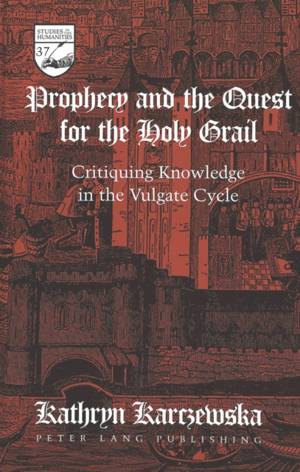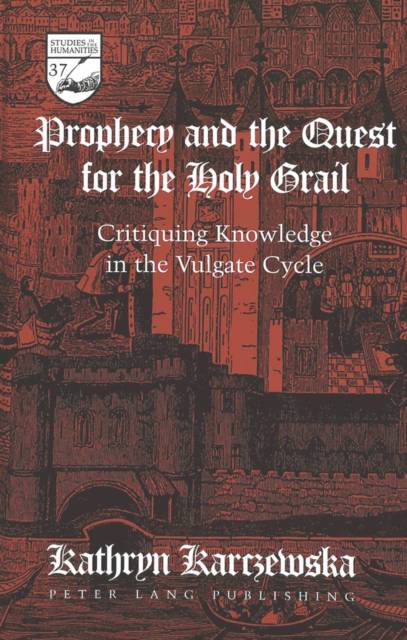
- Afhalen na 1 uur in een winkel met voorraad
- Gratis thuislevering in België vanaf € 30
- Ruim aanbod met 7 miljoen producten
- Afhalen na 1 uur in een winkel met voorraad
- Gratis thuislevering in België vanaf € 30
- Ruim aanbod met 7 miljoen producten
Zoeken
Prophecy and the Quest for the Holy Grail
Critiquing Knowledge in the Vulgate Cycle
Kathryn Karczewska
€ 61,45
+ 122 punten
Omschrijving
The Holy Grail is one of the most enduring of medieval symbols, exercising a profound fascination on the imagination even to this day. This study reconsiders the Vulgate Cycle, and the functional interrelation of prophecy and epistemological critique in thirteenth-century Grail literature: no mere prediction, prophecy marks a critical strategy by which the nature and limits of knowledge are put into systematic question. By examining the critical function of such language, the study demonstrates the political significance of the Vulgate Cycle for the thirteenth-century Church: in tracing the various means by which authority is disclosed in this literature, it elaborates the genealogical structure of prophetic knowledge, and the overly subversive logic by which such insight is made specific to the clergy. By reformulating the nature of prophecy in the cycle, and suggesting the political stakes of such language, it lays the groundwork for future analysis of medieval Grail literature and its cultural legacies.
Specificaties
Betrokkenen
- Auteur(s):
- Uitgeverij:
Inhoud
- Aantal bladzijden:
- 279
- Taal:
- Engels
- Reeks:
- Reeksnummer:
- nr. 37
Eigenschappen
- Productcode (EAN):
- 9780820438528
- Verschijningsdatum:
- 1/04/1998
- Uitvoering:
- Hardcover
- Formaat:
- Genaaid
- Afmetingen:
- 160 mm x 230 mm
- Gewicht:
- 599 g

Alleen bij Standaard Boekhandel
+ 122 punten op je klantenkaart van Standaard Boekhandel
Beoordelingen
We publiceren alleen reviews die voldoen aan de voorwaarden voor reviews. Bekijk onze voorwaarden voor reviews.







